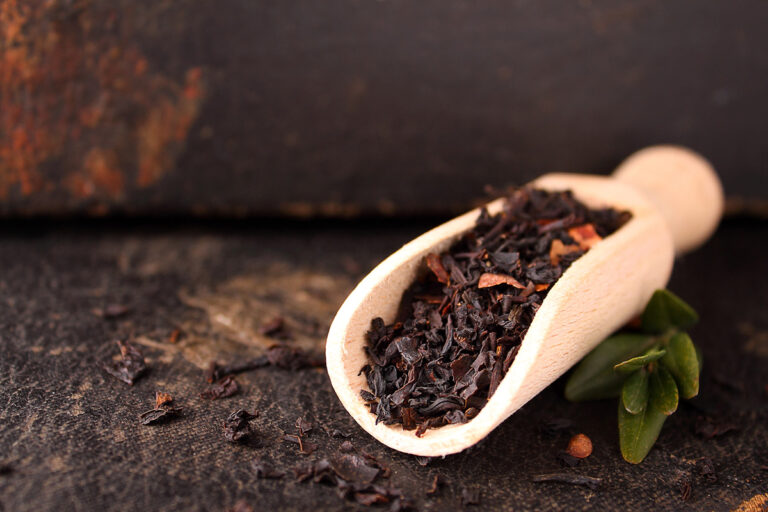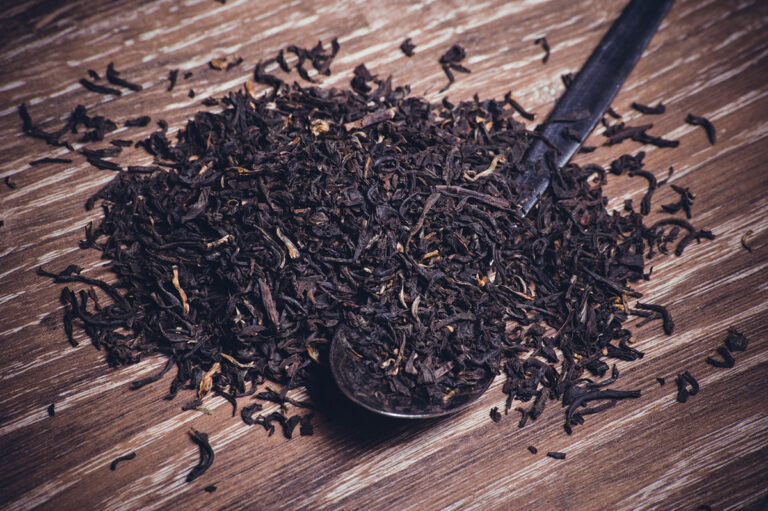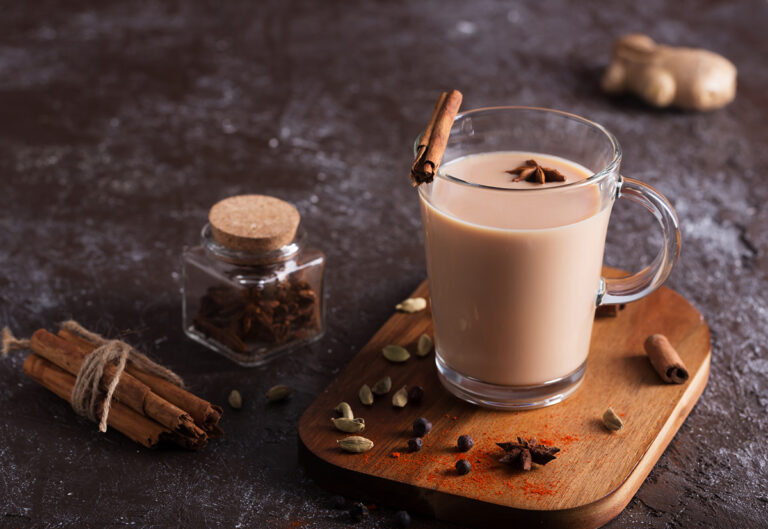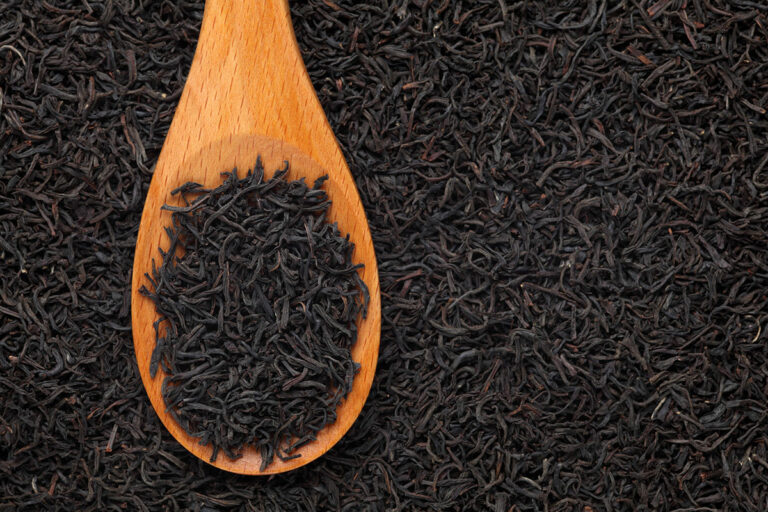Assam vs. Ceylon Tea: What’s the Difference?
Tea has been a beloved beverage worldwide for thousands of years, with different regions producing unique varieties.
Among these are Assam and Ceylon teas, both hailing from the Indian subcontinent and holding distinctive characteristics that set them apart.
In this article, we will explore the differences between Assam and Ceylon tea, their origins, flavors, and which may suit your personal taste best.

What Is Assam Tea?
The black tea, called Assam tea, originates from the Assam region in northeastern India. The region’s fertile soil, diverse ecosystem, and climate marked by substantial rainfall and high humidity make it ideal for growing tea.
Assam tea originates from the Camellia sinensis var. assamica plant, recognized for its sizable leaves and bold flavor.
Assam tea is characterized by its dark, rich, and malty flavor, with a bold and robust aroma. The brew is typically a deep amber color, often described as vibrant or bright.
Assam tea is commonly used as a base for various blends, including the famous English Breakfast and Irish Breakfast teas. The rich flavor of Assam tea makes it an optimal choice for fans of a robust and invigorating cup of tea, especially in the morning.
What Is Ceylon Tea?
Ceylon tea refers to tea produced in the island nation of Sri Lanka, formerly known as Ceylon. The tea is grown across the country, with each region contributing its unique flavors and characteristics to the final product.
Ceylon tea is primarily made from the Camellia sinensis var. sinensis plant, which is smaller-leaved and more delicate than its Assam counterpart.
Ceylon tea is known for its bright, lively, and citrusy flavor profile. It ranges in color from golden to dark brown, depending on the specific region and oxidation level. The aroma of Ceylon tea is often described as fresh and uplifting, making it a popular choice for afternoon tea.
There are several Ceylon tea varieties, such as black, green, and white, yet black Ceylon tea remains the most recognized and widely produced.
What Are the Differences Between Assam Tea and Ceylon Tea?
While both Assam and Ceylon teas are types of black tea, there are several key differences between the two:
- Origin: As mentioned earlier, Assam tea is native to the Assam region in India, while Ceylon tea is produced in Sri Lanka.
- Plant variety: Assam tea comes from the Camellia sinensis var. assamica plant, which has larger leaves, whereas Ceylon tea is derived from the Camellia sinensis var. sinensis plant, known for its smaller leaves.
- Flavor profile: Assam tea has a bold, rich, and malty flavor, while Ceylon tea is characterized by its bright, lively, and citrusy notes.
- Color: Assam tea usually brews a deep amber color, while Ceylon tea ranges from golden to dark brown.
- Aroma: The aroma of Assam tea is robust, whereas Ceylon tea has a fresh and uplifting scent.
- Blends: Assam tea is often used as a base for English and Irish Breakfast teas, while Ceylon tea can be found in various blends, such as Earl Grey and Russian Caravan teas.
- Caffeine content: Assam tea tends to have a higher caffeine content than Ceylon tea, making it a more energizing option.
Which Is Better, Assam or Ceylon Tea?
When it comes to choosing between Assam and Ceylon tea, it ultimately depends on personal preference. Both teas offer unique flavors and characteristics that cater to different tastes.
If you prefer a bold, rich, and malty tea with a higher caffeine content, Assam tea might be the better choice for you. It’s a fantastic option for those who prefer a robust and energizing cup of tea, particularly in the morning.
Alternatively, Ceylon tea might be a better option if you prefer a lively, citrus-flavored, refreshing tea with less caffeine. This tea’s invigorating taste and scent make it perfect for an afternoon break or a mild energy boost throughout the day.
Final Thoughts
Both Assam and Ceylon teas offer distinct flavors and characteristics that appeal to a wide range of tea enthusiasts. It’s worth trying both types to discover which best suits your taste buds. You may even discover that you prefer each tea at various times throughout the day or for different occasions.
FAQ
Is Assam Tea Stronger Than Ceylon?
Assam tea is generally considered stronger than Ceylon tea in terms of flavor and caffeine content. Assam tea has a bold, rich, and malty flavor profile. It tends to have higher caffeine content, making it a more robust and energizing option.
Is Assam Tea Stronger Than Darjeeling?
Assam tea and Darjeeling tea both originate from India, but they have distinct flavor profiles and strengths.
Assam tea is known for its bold, rich, and malty taste. In contrast, Darjeeling tea has a more delicate, fruity, and floral flavor.
Assam tea is typically stronger than Darjeeling tea in terms of strength and caffeine content.
However, it’s essential to note that personal preferences and specific tea grades may vary, affecting the overall strength and taste of the tea.




